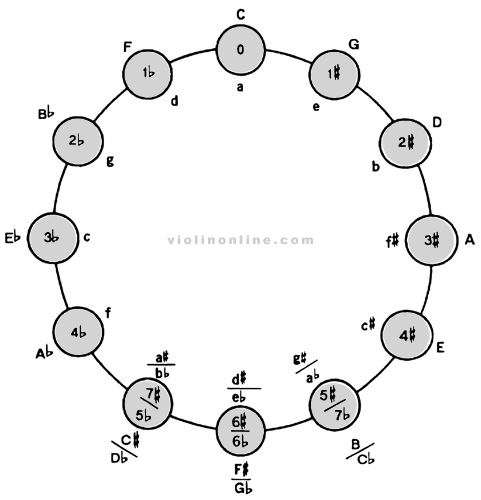Sharps, Flats & Naturals
| Notation | Name | Definition |
|---|---|---|
Sharp |
 |
A sharp set before a note raises the pitch of the note a half-step, and remains in effect for the rest of the measure. |
Flat |
 |
A flat set before a note lowers the pitch of the note a half-step, and remains in effect for the rest of the measure. |
Natural |
 |
A natural set before a note restores the natural pitch of a note, and is often used after a flat or sharp. |
| Enharmonic Notes |
 |
Enharmonic notes are two notes that sound the same, but are spelled differently (e.g. A# and Bb). |


